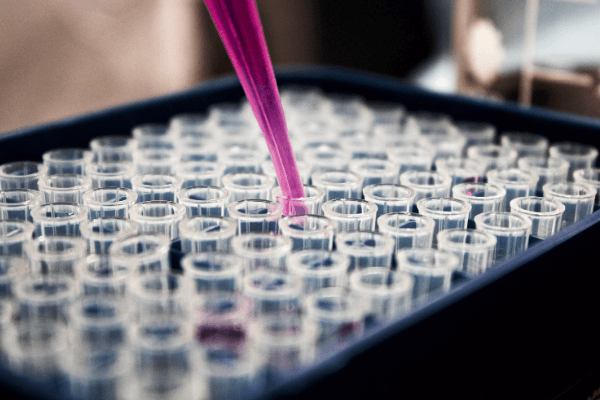Chemical testing and analysis of materials is essential to understand their quality and composition, to comply with regulations and to develop innovative materials that provide effective solutions. In this article, we will explain what chemical analysis is and what it is used for.
What is chemical analysis of materials and what is it for?
Chemical analysis consists of a wide range of methods capable of accurately identifying the composition, characteristics and quality of a wide variety of materials. The development of new alloys, coatings, polymers and composite materials is being applied to innovative product design and manufacturing techniques, making accurate identification of material compounds critical at every stage of production.
We can find a practical application in materials and composites innovation through chemical analysis in this example of optimization and additivation of plastics and elastomers with antimicrobial actives.
Industry expertise and experience in applying the most relevant methodology are the keys to successful chemical testing. Advanced analytical instrumentation and techniques are required to solve problems or determine composition. In the following, we will see which techniques are used in the materials industry.
Types and techniques of chemical analysis
Industrial chemical laboratories perform chemical testing and analysis including compositional analysis, trace contamination detection, metal testing and failure identification that are used for manufacturing quality control and reverse engineering, for example, to determine the physicochemical properties in a quality study of a processed food.
To determine composition, solve problems and develop new materials, you need advanced analytical instrumentation and apply the right techniques for each purpose. These are some of the types of analysis that can be performed in a chemical laboratory:
Chemical composition analyses.
Determines the chemical quality, identity, composition and impurities of materials by elucidation of molecular structure and confirmation of chemical structure.
Trace chemical analysis
Chemical trace testing includes trace analysis of metals and organic compounds with detection down to trace and ultra-trace ranges and chemical residue testing includes analysis, detection and identification of residues to solve industrial problems.
Elemental analysis
Using a wide range of analytical techniques, laboratories identify and quantify the elemental composition of samples and chemical compounds. Sample types include organic and inorganic analyses, aqueous and non-aqueous materials and metals.
Detection and analysis of contamination
The resolution of chemical contamination requires a rapid response. Chemical analysis makes it possible to quickly identify and resolve contamination problems.
Material testing and analysis
Chemical analysis of materials is indispensable in virtually every industrial sector, from specialty chemicals, nanomaterials development, materials innovation, petrochemicals, dyes and detergents, automotive, agrochemicals, metals, polymers, plastics, ceramics and even pharmaceuticals and consumer products.
Chemical analysis of metal alloys
These are analyses that identify and quantify the elemental composition of a metal alloy. They are extremely useful for manufacturing quality control, reverse engineering and failure investigation.
Chemical compliance testing
These are used to ensure that products comply with chemical regulations and are essential for some industries, such as agrochemicals, pesticides and pharmaceuticals.
Chemical analysis applications and troubleshooting
- Product deformation: provide specific information on product ingredients.
- Residue analysis: determine the causes of discolorations, stains and corrosion deposits.
- Defect analysis and identification.
- Batch comparison of good and bad materials.
- Failure analysis.
- Method development.
- Regulatory compliance.
- Analytical and technical consulting services.
Chemical analysis techniques
Determining the composition of materials is possible thanks to advanced analytical techniques, such as the following:
Mass spectrometry (ICP MS)
Inductively coupled plasma mass spectrometry is a very sensitive elemental analysis technique that provides very low detection limits for most of the elements present in a sample, as in the case of the characterization of gases released by plastics.
Characterization of metal and polymer powders
Many test methods are employed, one of which uses laser light diffraction to determine particle size distribution.
C-S, O-N and H combustion tests
Combustion carbon and sulfur analysis allows simultaneous quantification of carbon and sulfur in metallic samples. Oxygen-nitrogen analysis and hydrogen analysis can also be employed.
Optical Emission Spectrometry (ICP-OES)
A chemical analysis is performed to represent the emission spectrum of chemical substances. A solid sample is atomized by an arc spark discharge that provides sufficient energy to promote electrons from atoms to high energy levels. As the electrons return to their basic energy state, light is emitted.
X-ray Diffraction (XRD)
One of the main uses of XRD analysis is the identification of crystalline phases for a wide variety of powders and thin film samples. This includes analysis of corrosion products, ceramics, clays, oxide or nitride coatings and many others.
X-ray Fluorescence Spectrometry (XRF)
XRF is a non-destructive, semi-quantitative analysis applicable to a wide variety of materials, including metals, polymers, liquids and soils.
We can conclude that chemical analysis of components offers verification of materials according to regulations, provides detailed information on the composition of materials and, therefore, on their behavior and performance for their intended use. They also allow the creation, design and development of new materials.
In Infinitia we have extensive experience in testing and chemical analysis of materials and we have professionals who offer the best quality assurance. If you need to perform a materials analysis or you are thinking of developing a new product, please contact our team.





